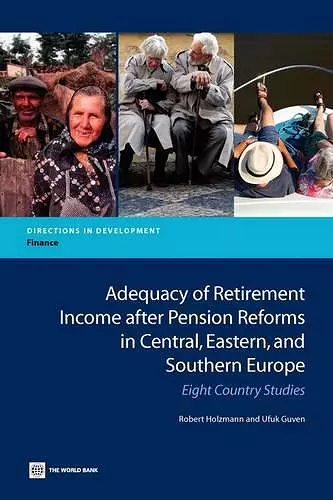Adequacy of Retirement Income after Pension Reforms in Central, Eastern and Southern Europe
Eight Country Studies
Robert Holzmann author Ufuk Guven author
Format:Paperback
Publisher:World Bank Publications
Published:17th Mar '09
Currently unavailable, and unfortunately no date known when it will be back

The former transition countries of Central, Eastern, and Southern Europe (CESE) inherited defined benefit public pension systems financed on a pay-as-you-go basis. Under central planning, these systems exhibited fiscal strains which worsened during the early years of the transition and became unsustainable under a market economy and projected population aging. All CESE countries introduced reforms that varied but typically focused on issues of sustainability rather than benefit adequacy. Nine case studies-Bulgaria, Czech Republic, Croatia, Hungary, Poland, Romania, Slovakia, Slovenia, and Serbia-suggest the following broad policy conclusions: (i) fiscal sustainability has improved in most study countries, but few are fully prepared for the inevitability of population aging; (ii) the linkage between contributions and benefits has been strengthened, and pension system designs are better suited to market conditions; (iii) levels of income replacement are generally adequate for all but some categories of workers (including those with intermittent formal sector employment or low lifetime wages); (iv) further reforms to cope with population aging should focus on extending labor force participation by the elderly to avoid benefit cuts that could undermine adequacy and very high contribution rates that could discourage formal sector employment; and (v) more decisive financial market reforms are needed for funded provisions to deliver on the return expectations of participants.
ISBN: 9780821377819
Dimensions: unknown
Weight: unknown
384 pages